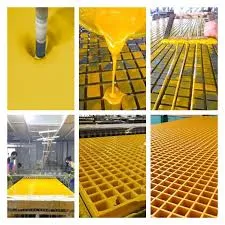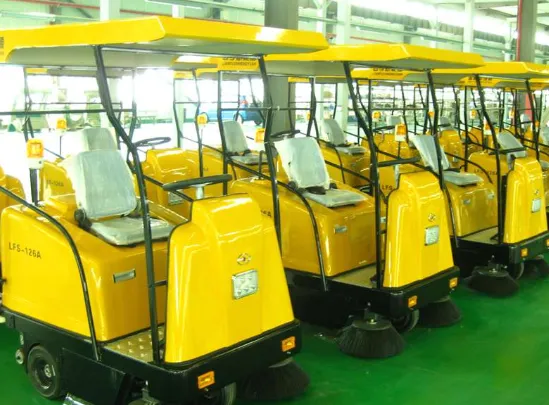
-
 Afrikaans
Afrikaans -
 Albanian
Albanian -
 Amharic
Amharic -
 Arabic
Arabic -
 Armenian
Armenian -
 Azerbaijani
Azerbaijani -
 Basque
Basque -
 Belarusian
Belarusian -
 Bengali
Bengali -
 Bosnian
Bosnian -
 Bulgarian
Bulgarian -
 Catalan
Catalan -
 Cebuano
Cebuano -
 China
China -
 China (Taiwan)
China (Taiwan) -
 Corsican
Corsican -
 Croatian
Croatian -
 Czech
Czech -
 Danish
Danish -
 Dutch
Dutch -
 English
English -
 Esperanto
Esperanto -
 Estonian
Estonian -
 Finnish
Finnish -
 French
French -
 Frisian
Frisian -
 Galician
Galician -
 Georgian
Georgian -
 German
German -
 Greek
Greek -
 Gujarati
Gujarati -
 Haitian Creole
Haitian Creole -
 hausa
hausa -
 hawaiian
hawaiian -
 Hebrew
Hebrew -
 Hindi
Hindi -
 Miao
Miao -
 Hungarian
Hungarian -
 Icelandic
Icelandic -
 igbo
igbo -
 Indonesian
Indonesian -
 irish
irish -
 Italian
Italian -
 Japanese
Japanese -
 Javanese
Javanese -
 Kannada
Kannada -
 kazakh
kazakh -
 Khmer
Khmer -
 Rwandese
Rwandese -
 Korean
Korean -
 Kurdish
Kurdish -
 Kyrgyz
Kyrgyz -
 Lao
Lao -
 Latin
Latin -
 Latvian
Latvian -
 Lithuanian
Lithuanian -
 Luxembourgish
Luxembourgish -
 Macedonian
Macedonian -
 Malgashi
Malgashi -
 Malay
Malay -
 Malayalam
Malayalam -
 Maltese
Maltese -
 Maori
Maori -
 Marathi
Marathi -
 Mongolian
Mongolian -
 Myanmar
Myanmar -
 Nepali
Nepali -
 Norwegian
Norwegian -
 Norwegian
Norwegian -
 Occitan
Occitan -
 Pashto
Pashto -
 Persian
Persian -
 Polish
Polish -
 Portuguese
Portuguese -
 Punjabi
Punjabi -
 Romanian
Romanian -
 Russian
Russian -
 Samoan
Samoan -
 Scottish Gaelic
Scottish Gaelic -
 Serbian
Serbian -
 Sesotho
Sesotho -
 Shona
Shona -
 Sindhi
Sindhi -
 Sinhala
Sinhala -
 Slovak
Slovak -
 Slovenian
Slovenian -
 Somali
Somali -
 Spanish
Spanish -
 Sundanese
Sundanese -
 Swahili
Swahili -
 Swedish
Swedish -
 Tagalog
Tagalog -
 Tajik
Tajik -
 Tamil
Tamil -
 Tatar
Tatar -
 Telugu
Telugu -
 Thai
Thai -
 Turkish
Turkish -
 Turkmen
Turkmen -
 Ukrainian
Ukrainian -
 Urdu
Urdu -
 Uighur
Uighur -
 Uzbek
Uzbek -
 Vietnamese
Vietnamese -
 Welsh
Welsh -
 Bantu
Bantu -
 Yiddish
Yiddish -
 Yoruba
Yoruba -
 Zulu
Zulu
Jan . 20, 2025 10:14
Back to list
frp weir
In the realm of modern engineering, the term FRP weir is not just an industry jargon but a pivotal element in various water treatment and management systems. FRP, or Fiber Reinforced Plastic, weirs are increasingly becoming a cornerstone for industries seeking durable, efficient, and cost-effective solutions for managing fluid dynamics. The unique properties of FRP materials—combining exceptional strength, lightweight characteristics, and corrosion resistance—make them a superior choice in environments where traditional materials falter.
From an authoritativeness perspective, several case studies have established benchmarks on the effectiveness of FRP weirs across different sectors. For instance, in the water treatment industry, FRP weirs have been integral to improving sedimentation processes, enhancing the precision of flow regulation, and ensuring compliance with stringent environmental regulations. Industry-standard certifications and endorsements from leading environmental agencies further solidify their authoritative standing. The environmental impact assessments frequently highlight FRP weirs as a sustainable alternative, due to their lower carbon footprint during production and significant energy savings realized from reduced maintenance needs. Trustworthiness in the application of FRP weirs is underpinned by decades of data-driven insights and real-world case performances. Manufacturers of FRP solutions provide extensive warranties, backed by rigorous testing protocols that simulate extreme operational scenarios. These practices reinforce trust among stakeholders, ensuring that clients have peace of mind when implementing these solutions. Furthermore, the lifecycle analysis of FRP weirs indicates that they not only meet but exceed the durability of conventional materials, resulting in long-term reliability. In conclusion, the adoption of FRP weirs epitomizes a strategic shift towards innovative, sustainable, and cost-efficient solutions in fluid management. The convergence of superior material properties, expert engineering, authoritative endorsements, and trusted performance creates a compelling case for industries to integrate FRP weirs into their water management strategies. As industries across the globe grapple with the challenges of sustainability and efficiency, FRP weirs emerge as a beacon of modern engineering prowess, paving the way for more intelligent and adaptable water management systems.


From an authoritativeness perspective, several case studies have established benchmarks on the effectiveness of FRP weirs across different sectors. For instance, in the water treatment industry, FRP weirs have been integral to improving sedimentation processes, enhancing the precision of flow regulation, and ensuring compliance with stringent environmental regulations. Industry-standard certifications and endorsements from leading environmental agencies further solidify their authoritative standing. The environmental impact assessments frequently highlight FRP weirs as a sustainable alternative, due to their lower carbon footprint during production and significant energy savings realized from reduced maintenance needs. Trustworthiness in the application of FRP weirs is underpinned by decades of data-driven insights and real-world case performances. Manufacturers of FRP solutions provide extensive warranties, backed by rigorous testing protocols that simulate extreme operational scenarios. These practices reinforce trust among stakeholders, ensuring that clients have peace of mind when implementing these solutions. Furthermore, the lifecycle analysis of FRP weirs indicates that they not only meet but exceed the durability of conventional materials, resulting in long-term reliability. In conclusion, the adoption of FRP weirs epitomizes a strategic shift towards innovative, sustainable, and cost-efficient solutions in fluid management. The convergence of superior material properties, expert engineering, authoritative endorsements, and trusted performance creates a compelling case for industries to integrate FRP weirs into their water management strategies. As industries across the globe grapple with the challenges of sustainability and efficiency, FRP weirs emerge as a beacon of modern engineering prowess, paving the way for more intelligent and adaptable water management systems.
Related Products
Latest news
-
FRP Hood Durable & Lightweight Fiberglass Hood SolutionsNewsApr.29,2025
-
Heavy-Duty Jackhammers for Construction Work Powerful & Portable Electric Demolition ToolsNewsApr.29,2025
-
High-Strength Fiberglass Flanges FRP Blind & Custom Flange SolutionsNewsApr.28,2025
-
Fiberglass Pipe Flanges High-Pressure & Corrosion-Resistant SolutionsNewsApr.28,2025
-
FRP Fuel Tanks Durable Fiberglass & PP Composite Fuel Storage SolutionsNewsApr.28,2025
-
FRP Trough Covers Durable Industrial Protective SolutionsNewsApr.28,2025









